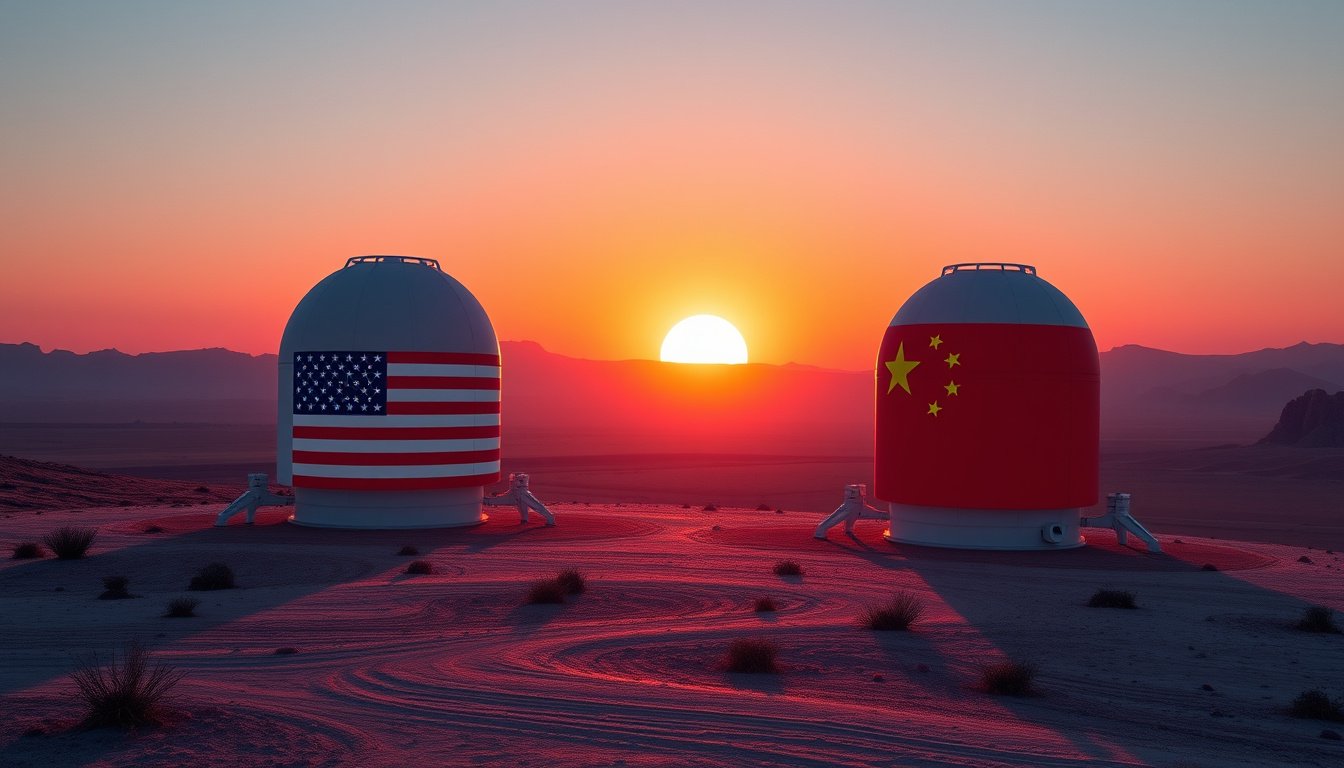Tensions between the United States and China are escalating dramatically, ignited by Beijing’s plans to establish a significant space observatory in Chile’s Atacama Desert, a region renowned for its astrological research conditions. This controversy arises amidst a backdrop of geopolitical competition in Latin America, prompting the attention of both nations.
In late April 2025, during a press conference in Santiago, China’s ambassador to Chile, Niu Qingbao, defended his country’s ambitions, rebuking U.S. officials for what he termed “interference” in Chile’s sovereign decisions. China views its cooperative agreements with Latin American countries — particularly regarding the high-resolution telescope project — as a natural extension of its influence in the region’s resource-rich landscape. The project, formalized in a 2023 agreement between China’s National Astronomical Observatory and Chile’s Catholic University of the North, promises to enhance observations of near-Earth objects, including asteroids and comets.
However, the observatory’s inception is heavily scrutinized by Washington, which is anxious about China’s expanding clout so close to American shores. During Senate confirmation hearings, Brandon Judd, President Trump’s nominee for U.S. ambassador to Chile, expressed concern over the implications of Chinese investments in strategy-vital sectors like agriculture, energy, and mining. He asserted that it was critical for the U.S. to strengthen ties with Chile to counterbalance China’s growing influence, underscoring a belief in American superiority as a trade partner.
The ongoing debate saw heightened voices from U.S. officials, with Senator Jeanne Shaheen highlighting the observatory and China’s existing space station in Argentina as evidence of Beijing’s global ambitions. This sentiment resonates amid fears that Chinese infrastructure projects in Latin America could bolster its intelligence-gathering capabilities — a claim ambassador Niu vehemently denied, asserting that China aims to promote scientific collaboration rather than geopolitical tension.
Facing mounting pressure, the Chilean government announced a suspension of the observatory project for a comprehensive review to clarify its implications. Chile’s Foreign Ministry indicated that dialogue with the university and Chinese counterparts was necessary to assess the project’s alignment with national interests.
The geopolitical landscape surrounding this observatory illustrates a broader trend: the space race is no longer confined to just superpowers but extends into realms of economic strategy and regional partnerships. Chile’s Atacama Desert has long been a hub for international astronomy, hosting observatories from the U.S., the European Union, and beyond, owing to its exceptional visibility and climatic conditions.
As discussions evolve, both nations await Chile’s decision on whether to proceed with the observatory amid a backdrop of intricate global relations. The outcome will not only shape U.S.-China dynamics but could also redefine Chile’s role as a key player in international scientific endeavors. How Chile navigates its partnerships amidst these emerging tensions could bear significant implications for its future relationships with both global powers.










